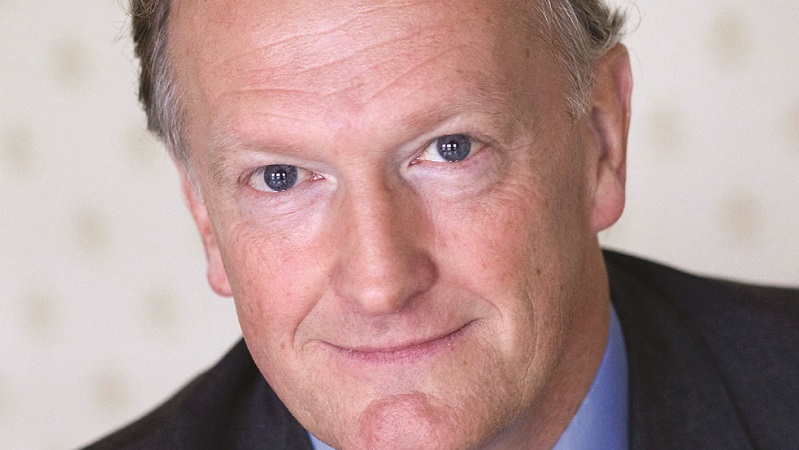Gore Browne Investment Management (GBIM) has its eye firmly on the future. A firm that boasts a seasoned senior management team actively recruiting younger blood to better address the needs of its more youthful client base, GBIM is also offering new-style investments that reflect the changing world.
The discretionary fund manager has three main offices, in Salisbury, Lancaster and Harrogate, and opened in 2004. According to founding partner Simon James, it has since focused on delivering a bespoke service, tailored to the individual investment and relationship needs of its clients. James is a director at the firm, leading its investment advisory committee and setting the investment strategy.
He is clear on his own personal biases “which we all have”. His include a penchant for long-term investing, believing “short-termism stops us from understanding quality, growth and valuation”, while focusing on active investing that is benchmark-aware but not at their mercy.
James describes the recent evolution of GBIM’s eight outcomes-based portfolios: “We are a discretionary, private client investment manager, and most of our work is with clients directly. We haven’t used models or done a lot with introducers in the past. Because we talk to clients about service rather than products, we haven’t needed to. Our own networks have brought us our clients.”
Yet he remains mindful that the younger generation of staff have not yet built up vast professional networks and therefore need something to give their conversations a clearer starting point. “I designed four of our eight portfolios to map against Asset Risk Consultants’ equity risk exposures and the underlying MSCI and Wealth Management Association asset components, which we call the ‘Fully Diversified’ Cautious, Balanced, Steady Growth and Global Equity portfolios.”
The other four headings are High Income, Income Growth, New World and Long Term Growth, which, short of describing them as ‘doing what they say on the tin’, suggests the labels resonate far better with clients than the “absolutely meaningless” labels he has no time for, “such as cautious managed”.
Experience counts
With a personal discipline of only ever holding 20 assets per portfolio, one of which may be cash to deploy in times of volatility, GBIM prides itself on the broader range of assets held in its portfolios.
The firm has “for at least a decade” strived for greater diversification benefits through favouring infrastructure, property, asset- backed securities, private equity holdings and other alternatives, which James says helps deliver uncorrelated outperformance versus a standard equity/bond split. Having said that, experience has taught the team to avoid performance targets.
“Most of my team have seen markets and interest rates go up and down, and we know that having a performance target is a waste of time. That doesn’t mean we don’t have long-term objectives,” says James. “We’re not interested in what happens over one month or one quarter to the next. We obviously have an interest in what’s going on in markets but we think if people are looking at less than three to five-year returns then they should think twice about whether they are doing the right thing.”
Another of James’ personal investment “biases” is to be early and risk some pain for doing so, rather than be a follower. This view has been exemplified by the firm’s underweight to UK equities, in place “for many years”, long before our Brexit fate began in June 2016.
He says: “There’s an awful lot of bad news discounted already. So many UK-centric companies look cheap, both compared with history and their peers in other countries, so whenever the news comes out, if it’s bad news it’s likely already been discounted or if it’s good news, the markets will react, it will be all over in a flash and we’ll have missed it.”
James feels a ‘no deal’ outcome on Brexit may result in a gilt rally. He says there are many globally focused UK companies and some strong tech firms that would be ripe M&A targets but any wave of that won’t begin until we know where Brexit is headed. Having said that, one UK equity holding that features heavily is the £2.5bn Evenlode Income Fund, which soft-closed in May 2018, run by Hugh Yarrow and Ben Peters.
“In terms of equities, we have a quality bias, which is based on the view that cashflow is essential. Any investment, be it a company, infrastructure or property, requires quite a bit of investment in order to be well-financed.
“In companies, that means strong balance sheets, which naturally ties in with Evenlode’s approach to choosing companies.”
Elsewhere in GBIM’s equities book is the £894m Law Debenture investment trust, managed by James Henderson and Laura Foll at Janus Henderson Investors. James likes this for its dual income stream as the company comprises both a ‘typical’ global investment trust and professional services offering, which is run separately, giving the trust a distinct, stable source of income to bolster its overall financial strength.
Investment trusts feature heavily across the range for typically lower fees, although the director concedes spreads on charges between comparable open and closed-ended funds have been narrowing in recent years.
“All other things being equal, we would generally opt for the investment trust, as fees tend to be lower. But we do have the Artemis Global Select Fund in our Steady Growth portfolio, and they also run an investment trust to the same process called Mid Wynd International, which had been trading at a premium, hence Global Select made it in instead,” he says.
James explains how looking at not just the current premium/discount to a trust’s current peers, but relative to its own history, are also important.
“If a trust is trading at a 5% discount, that might not necessarily be considered cheap – if it has historically traded at a 15% discount, for example.”
The other feature James favours is their closed pool of assets, which affords trusts to hold less-liquid assets, and can therefore support the longer-term investment horizon to which he subscribes.
Generation aspiration
Hand in hand with the longer-term theme is the firm’s clear stance on environmental, social and governance (ESG) investments. Slightly scathing of the industry’s “bandwagon” approach to ESG witnessed throughout 2018, he is fully cognisant that the underlying trends represent the global trajectory. GBIM’s New World portfolio, however, goes beyond average ESG criteria, and James views it as “aspirational”.
“People of my generation – I’m 60 – are increasingly interested in these things but they are often sceptical. Millennials are also very interested.”
He summarises: “We all whinge about the bad things going on around us, so wouldn’t it be great if we had a portfolio that invested in things we think are good.”
The New World portfolio holds stalwart equity fund names such as Impax Environmental, Jupiter Ecology and WHEB Sustainability, but also some more specialist holdings, such as the RobecoSAM Gender Equality and Smart Materials funds, Robeco Sustainable Food and the Clean Energy, Smart City and Water funds from thematic specialist Pictet. Perhaps less expected, is Blackrock Frontier Markets.
James says: “One of the biggest social problems we have is migration, whether it’s refugees or economic migrants. If we can invest in companies based in the countries from which these migrants come, they will be more inclined to stay there.”
Ethical bond funds feature from Rathbones and Royal London, through which Bryn Jones and Eric Holt, respectively, represented the sector long before it became de rigeur, he says. Elsewhere, one of the real assets holdings is Assura, a property investment vehicle that owns doctors’ surgeries.
Real assets and alternatives are undoubtedly one of Gore Browne Investment Management’s favoured asset classes, for reasons demonstrated by their significant presence within both the Cautious and High Income portfolios, as well as their diversification characteristics. HG Capital and Pantheon are two of the private equity holdings, while 3I Infrastructure supports projects around the world.
James defines two types of infrastructure assets: social and economic. The first is typically seen in the UK, such as schools, hospitals and prisons. “This is where people get paid for providing a service,” he says. “As opposed to economic infrastructure, where you get paid for the throughput, such as a toll road or an airport.”
James praises 3I for its breadth of portfolio, which not only looks at social and economic infrastructure inside and outside the UK but also might include something less typical, like an oil storage capacity and INPP, the major investor in the long overdue replacement London sewage system.







